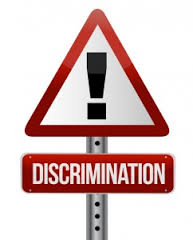Female and Underrepresented Minority Workers in California Restaurants Often Experience Discrimination, Study Finds
Discrimination is not uncommon for female workers and minorities, in the California restaurant industry, a study conducted by University of California researchers has revealed.
The findings, published in a report entitled, “Ending Jim Crow in America’s Restaurants: Racial and Gender Occupational Segregation in the Restaurant Industry,” provide some insight regarding the wages, staff level disparities and occupational segregation among restaurant workers, based on their gender and race.
And the findings are surprising – if not outright shocking.
A Closer Look at the Study’s Findings

Female workers & minorities often face discrimination in the CA restaurant industry, study finds
To develop a clearer, comprehensive picture of the nature of discrimination in the California restaurant industry, researchers conducted some quantitative data analysis, as well as interviews with restaurant owners, general managers, employment discrimination experts and others. As a result of this work, researchers discovered that:
- White men earned the highest hourly wages, which were an average of $14.18. While minority men earned an average of $11.16/hr, white women earned about $11.60/hr, and minority females earned just over $10/hr.
- More than 80 percent of the management positions – and about 78 percent of high-level, non-management positions – were filled by white employees, most of whom were male.
- In contrast, underrepresented minorities were far more often filling “back-of-house” positions, such as cooks and kitchen staff.
- Front-of-house staff make about 12 percent more than back-of-house staff. However, women in front-of-house positions tend to only earn about 78 percent of what their male counterparts bring in.
Commenting on these findings, Chris Benner, a contributing researcher, as well as an environmental studies professor at U.C. Santa Cruz, stated:
What became clear in interviews is that it’s a complex issue…Each of these actors have real barriers as well as perceived barriers to getting higher pay… A lot more research has to happen.
While researchers remain focused on finding answers, others – like Saru Jayaraman, director of the Food Labor Research Center at U.C. Berkeley, are now intent on implementing policy changes to try to end gender and race discrimination in the California restaurant industry. The goal is to have systemic changes rolled out within three to five years.
Contact the Los Angeles Employment Discrimination Lawyer at Broslavsky & Weinman, LLP
If you have been the target of workplace discrimination, contact a Los Angeles employment discrimination lawyer at Broslavsky & Weinman, LLP for experienced help and superior representation. Call us at (310) 575-2550 or email us using the contact form on this page to find out more about how we can help you.
